:quality(75)/cloudfront-us-east-1.images.arcpublishing.com/elcomercio/GE4DCNJNGEYC2MJUKQYDAORRHA.jpg)
As soon as he set foot outside the dangerous Darién jungle, Pedro* learned that the rules of the game to enter USA had changed.
The 28-year-old, whom we will call Pedro because he asked to keep his identity anonymous, left Venezuela two weeks ago with a strategy: cross Colombia, Central America and Mexico to reach the United States.
Look: Everything you need to know about the new immigration policy for Venezuelans in the US.
Upon stepping into the state of Texas, he would surrender to the authorities confident of receiving humanitarian parole to seek asylum, like any other of the 150,000 Venezuelans who entered US territory through the border with Mexico during the last fiscal year, an increase 293% compared to the previous year.
However, on Wednesday night October 12, 2022, hours before Pedro arrived at the north end of the Darién cap in Panamathe US Department of Homeland Security announced that Venezuelans would be returned to Mexico if they attempted to cross the southern border.
Pedro found out through other Venezuelans who lined up at the United Nations and Doctors Without Borders camps at the San Vicente Migratory Reception Station, the place where migrants arrive who manage to overcome the swamp, the rivers, the assaults and fatigue, on his journey through the Darien.
The Colombian Attorney General’s Office warned earlier this month that around 3,000 people enter that jungle of more than 575,000 hectares every day, which acts as a natural barrier between Central and South America, without roads that delimit the route between Panama and Colombia.
Although he was intrigued by the news, Pedro found no strength to ask the strangers. He had swollen legs and feet, common symptoms for anyone who, like him, had walked for 10 days with a 25-kilo bag in tow.
The difference, in his case, is the hip. To summarize the diagnosis they gave him as a child, he assures that his hip is flat. If you had the same curvature as most people, you wouldn’t have to walk with your feet turned out to compensate for deviations in your femur.
emigrate by plane
In the talk that took place in front of him, they commented that Venezuelans could legally reach the United States by plane, referring to a new program that will benefit 24,000 Venezuelans who have a sponsor in the United States capable of providing them with “financial and other support.” , and that has been applied with those displaced by the war in Ukraine.
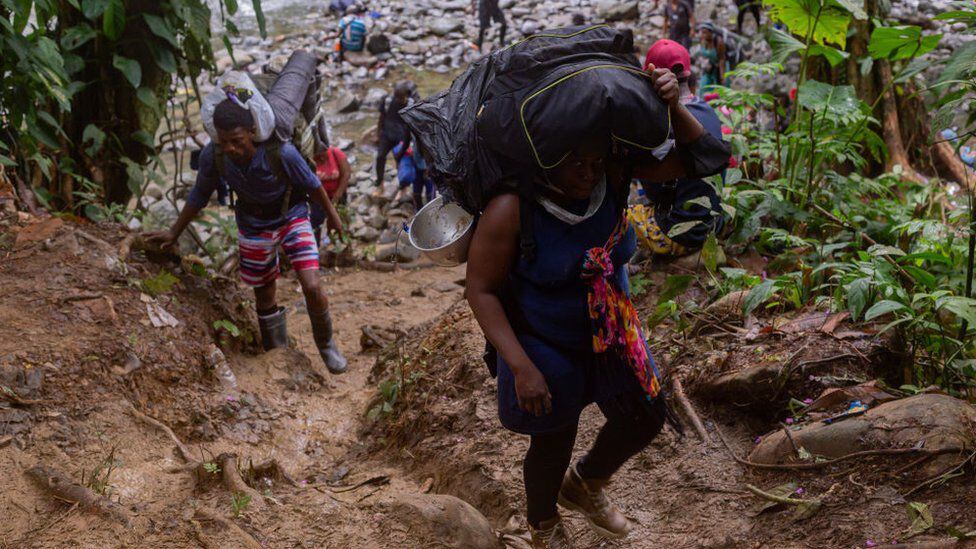
Pedro assumed that this formula could work for him. His brother had emigrated to the United States seven years before and had a stable job on Google. He could surely support him in his process.
“I just crossed the Darién and I will find a way to get to the United States,” he told BBC Mundo by telephone hours after arriving in San Vicente, while waiting for a doctor to examine his feet.
“There will always be a way to pass. The worst already lived it,” he said that with the new regulations he will send him back to Mexico.
false positives
Pedro says he first fled his home in March 2021, when Venezuelan Army soldiers clashed with a dissident group of FARC guerrillas in La Victoria, a farming and ranching town in Apure state, southwestern Venezuela. .
When he heard the rumor that military tanks were approaching, Pedro decided to cross the Arauca River with his father to take refuge in a shelter in the Colombian province of Arauquita. Given that they were two single men who lived in a remote house, he assumed that they could become “false positives”: civilians killed by the Army as if they were belligerent actors in the conflict.
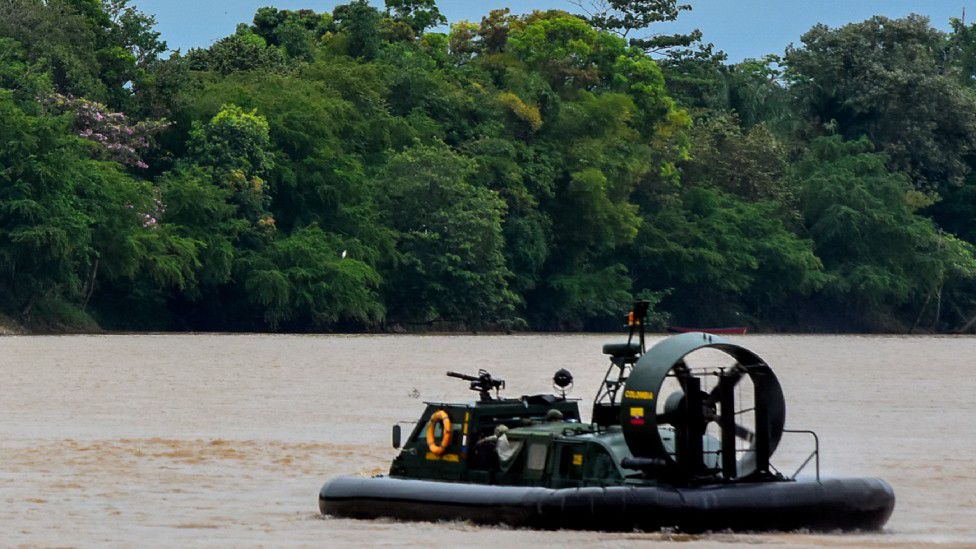
Pedro and his father stayed for a month in a shelter named El Gabo, in honor of the Colombian writer Gabriel García Márquez. When they returned to victory, they discovered that his house had been looted.
They stole his computer, the supplies with which he raised chickens that he sold in Colombia, and the tools he used to repair telephones and electrical appliances belonging to other inhabitants of the town. The same thing happened to his neighbors. At least 16 peasants he had known all his life had been killed.
For more than a year he tried to recover economically from that loss. He helped the owners of nearby farms to milk the cows and plant the land, but what he earned was not enough to buy his father’s medicine for neuropathy and the pain of an inguinal hernia and another in the neck.
A cousin proposed to cross the Darién together to go to the United States. He supposed that jungle resembled the mountains where they worked in the plains of Apure. The return would get cheap because they had no wives or children.
Pedro joined US $ 500 and decided to leave with his cousin and two friends. When he said goodbye to his father, he promised him that he and his brother would soon get him out of victory. By plane, so that the hernias would not bother him.
The migrant business
Pedro and his companions traveled by bus from La Victoria to San Cristóbal, in western Venezuela, and then to the Colombian cities of Cúcuta, Medellín and Necoclí, the municipality where the boats board to Capurganá, the entrance to the Darién jungle. .
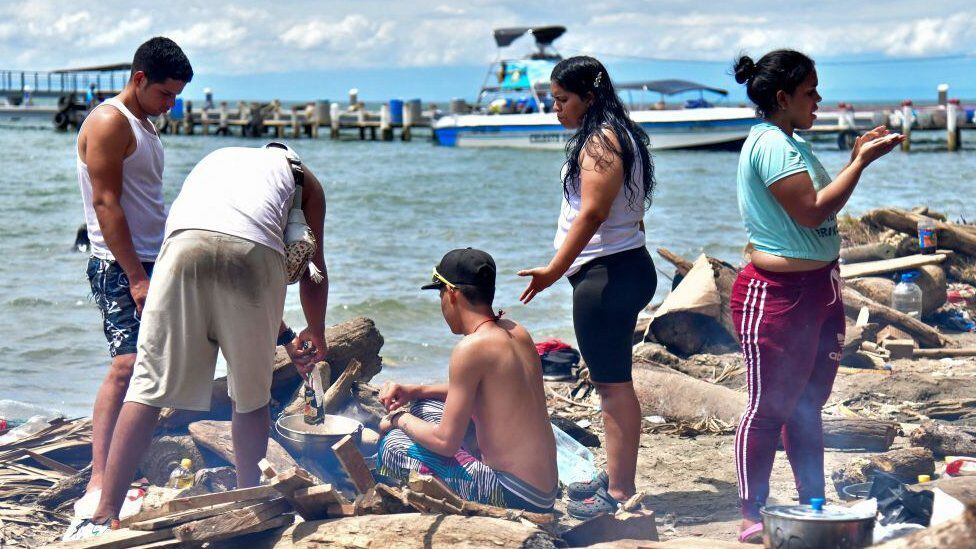
They each paid US$200 to board a boat that would take them to the first indigenous camp. Pedro had kept his phone and other valuable belongings inside a sealed plastic bag, to preserve them from the water if the bag got wet. The money was “attached to the body”, to prevent them from taking the cash if they tried to rob him.
Ten minutes after starting the tour, at night so that no official patrol would detect them, the water began to penetrate the boat until it sank. While other people who did not know how to swim clung to the remaining parts of the boat, Pedro retrieved the backpack in which he was carrying canned food, cookies, a tent, and the mobile phone that had gotten wet.
Another boat rescued them and that group of 21 people had to delay their journey a day so that the coyotes who had organized the first section could buy the boots and the food that they had to replace after the sinking.
“For them, we migrants are a business,” Pedro said when recounting his journey through the jungle. He paid US$50 for each night in an indigenous camp. “Sometimes they served us food without telling us that we would have to pay for it separately even if we hadn’t asked for it. They were rations for a 5-year-old child.”
She was glad she’d packed some braided leather boots. When the companions wearing rubber boots tried to get their feet out of the mud, the mud was so heavy that they got stuck. Many had no choice but to cross the swamps barefoot.
Darién’s landscape did not look like the plains of Apure. Pedro would have liked someone to warn him that some sections of the La Llorona mountain were so steep that they could only be climbed by holding on to the roots of the trees.
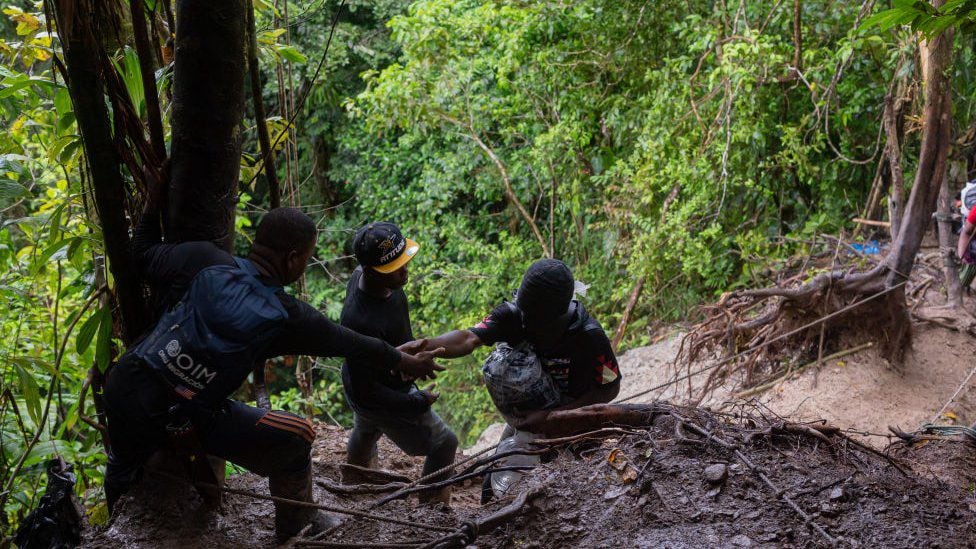
Once they got past La Llorona, Pedro and his companions were abandoned by the coyotes. The next territories were the domain of another tribe. From then on they had to look for the banks of the Rio Grande and follow the blue bags that the indigenous and other migrants leave on the road to facilitate the orientation of those who come behind.
“You have to look for traces of people in the jungle. Footprints, blue bags, remains of tents. If you find that, you’re on the right track. But if you only see bush and mud, you’re lost.”
Along the way they ran into indigenous people dressed as soldiers and armed with rifles. At one of the camps he met a coyote who offered his services as a guide. The man asked if they had seen any bodies along the way. Peter shook his head.
The coyote said he found one or two bodies a week in the jungle. He had seen several migrants die in the same way: first, they sweated profusely, then passed out. “There one knows that they are going to have a heart attack.”
When a migrant died or came across a body, the coyote left a mark, in case a relative appeared who wanted to remove it. To do this work, the man charged US$4,500: US$1,600 for himself, and the rest for the people who would help him move the remains out of the jungle.
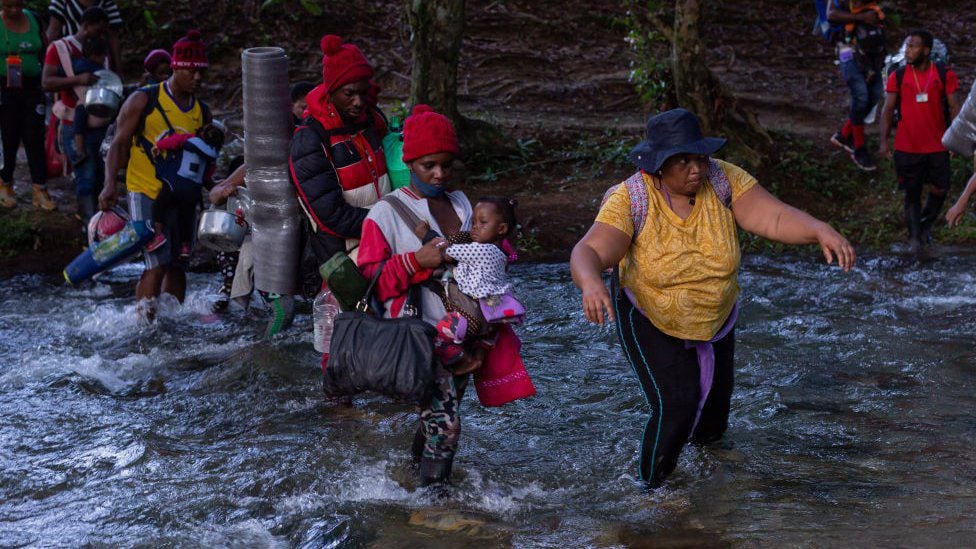
The call
When he found out about the US border blockade, Pedro decided to buy a cell phone in San Vicente to communicate with his brother.
As soon as he heard the news, his brother called a lawyer to assess whether Pedro can apply for the program to enter the United States with a sponsor, although one of the rules to apply says that the migrant cannot have entered Mexico or Panama illegally.
“I got to Mexico, I’ll cross it anyway,” said Pedro’s brother. “We’ll see if it’s by plane or by land, but I’ll cross it.”
Pedro has US$200, enough to get to Mexico. For the moment, he will stay in San Vicente to wait for the call from his brother and define what the next step will be to reach the United States.
Source: Elcomercio
I, Ronald Payne, am a journalist and author who dedicated his life to telling the stories that need to be said. I have over 7 years of experience as a reporter and editor, covering everything from politics to business to crime.






